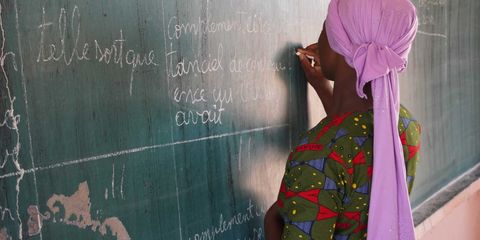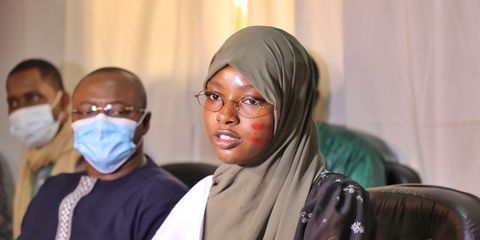Diatou, an out-of-school girl takes a seat in the classroom
The World Economic Forum estimates it will take 131 years to reach gender equality. But we say, that’s just NOT good enough. Diatou's Plan to Beat the Clock is to study and become a doctor so that she can support her family.
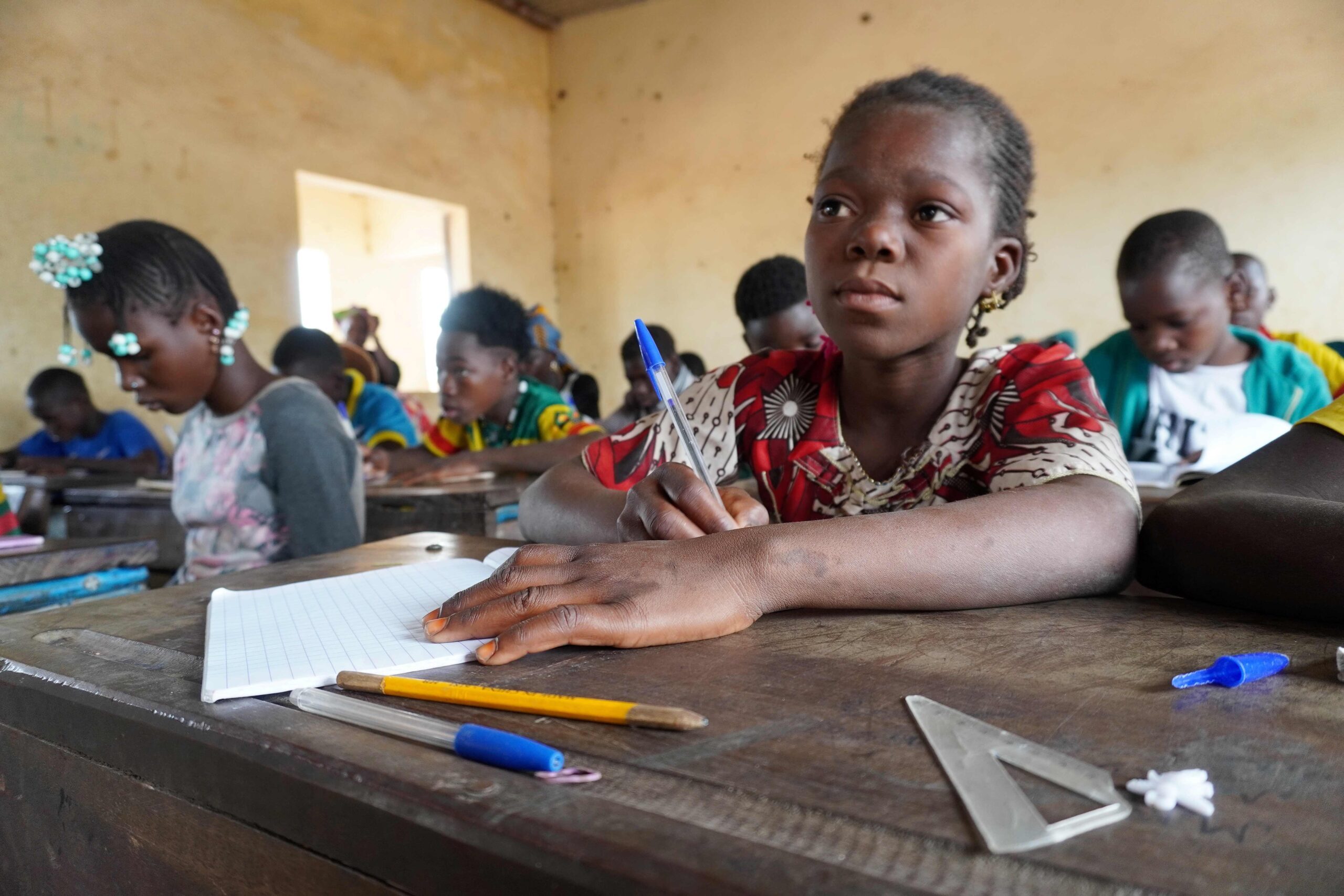
Diatou, 11, learning at school in Mali. © Abdourahmane Coulibaly
Out-of-school 11-year-old Diatou is entering the classroom for the first time and learning to create a better future for herself.
Part of the unequal choice of girls’ education
Diatou, 11, is one of 7 siblings living in Bougouni region in Mali. Until last year, she had never been to school as her mother could only afford to send her 2 sons to school.
“I have 7 children, 5 of whom are girls,” shares Diatou’s mother who is raising her children alone. “Some have been to school, including my first boy who was able to go up to 9th grade. We do not have the means to send all the children to school. To support the children, I make charcoal, I do farm work and I sometimes work for other people to earn money to feed the children.”
Girls like Diatou are often unable to attend school even when they’re eager to do so, as many families favour education for boys over girls. Parents and community leaders often don’t see the value in educating girls, believing it to be unnecessary for their primary roles in life as wives and mothers.
Accelerated learning
“When my brothers went to school and left me alone at home I was not happy at all. Sometimes I followed them to school and spied on them from outside,” admits Diatou. When an accelerated learning centre was set up in her village and she had the opportunity to attend, Diatou grasped it.
Accelerated learning centres, known as speed schools, have been set up in communities and supported by Plan International to provide inclusive learning opportunities for girls and boys aged 6 to 12. Out-of-school children receive 9 months of intensive lessons in order to reintegrate into the formal school system.
Joining the speed school, Diatou has recently graduated with flying colours and is now at a mainstream school where she has amazed her teachers with her impressive results.
“Her results are the highest of any child who has reintegrated into the normal school system,” says school director Yaya Koné. “Diatou is one of the best students in my 5th grade class. For a girl who has never been to school, who always manages to be in the top 3 of her class, it’s extraordinary.”
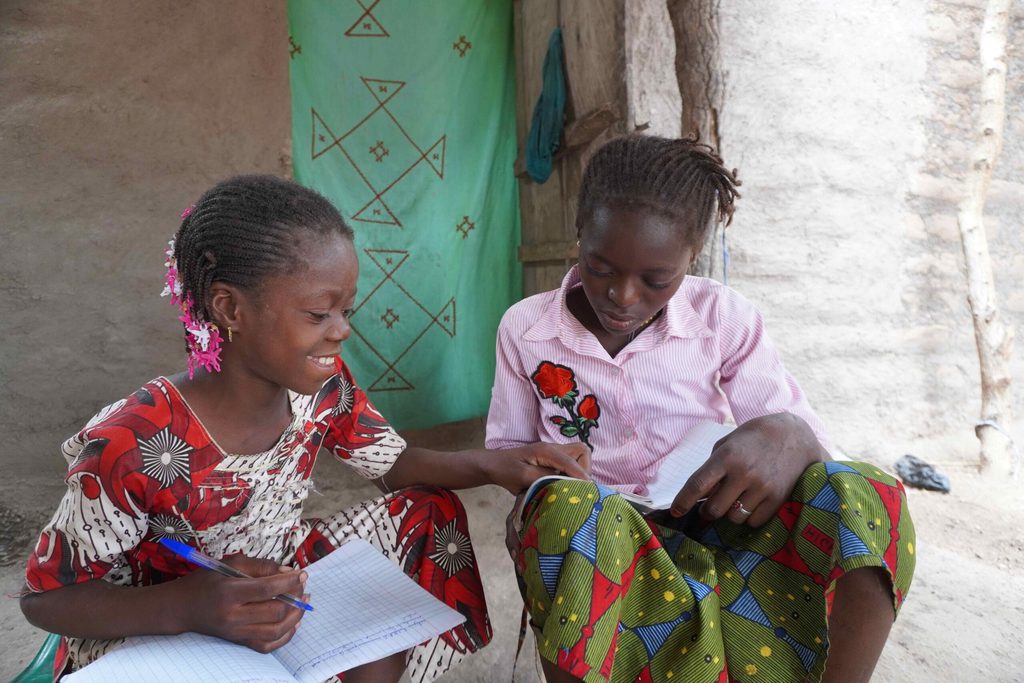
“I love studying and I really enjoy French. I’m happy to be among the best in my class.”
Diatou, 11.
Today, Diatou is the pride of her family, particularly for her mother who has been raising her children alone for the past 2 years. “Everyone tells me that Diatou is very smart at school and that makes me proud. I want my children to move forward in life and be able to fend for themselves,” she says.
For Diatou, being able to go to school like other children has made her very happy. “I love studying and I really enjoy French. I’m happy to be among the best in my class,” she says.
When she is asked what she wants to do when she grows up, Diatou is quick to answer. “I would like to continue my studies and become a doctor. Succeeding in life will allow me to support my mother.”
Having become one of the highest performing students in her class after just a year of education, we are sure that Diatou can achieve her goal.
Thousands of students integrated into formal education
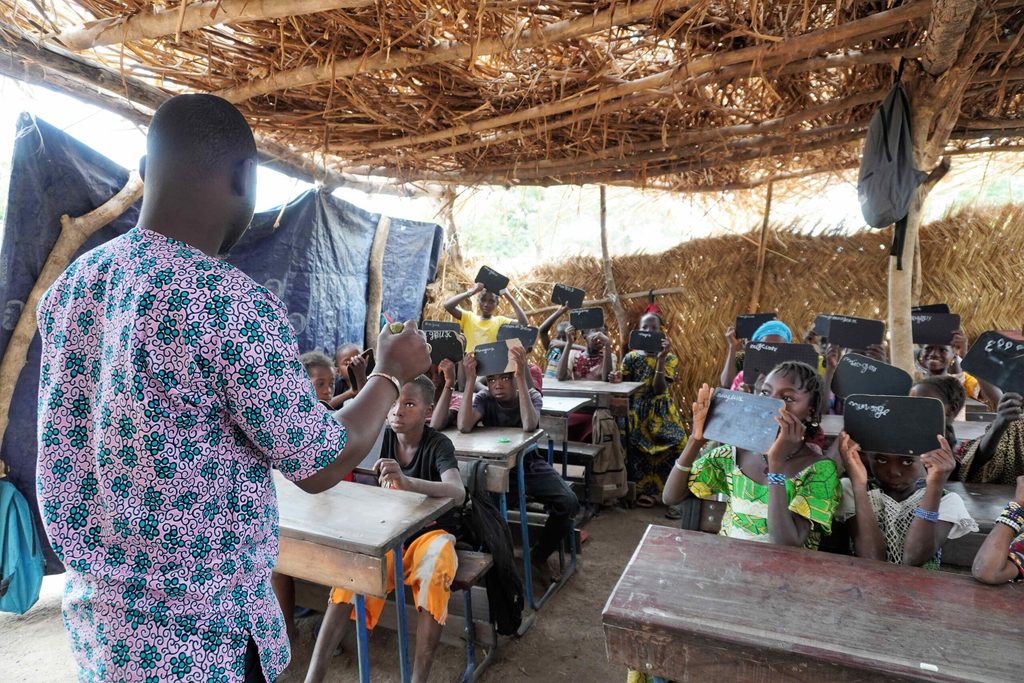
Mali is one of the poorest countries in the world. Education is a low priority, and more than 2 million children aged between 5 to 17 are currently out of school. Over half of Mali’s young people aged 15 to 24 are illiterate according to Unicef.
Even for those girls who do start school, cultural practices like child marriage can bring their education to an abrupt halt. Many are forced to drop out in order to focus on domestic responsibilities or to raise children of their own. Girls who aren’t in school are much more likely to marry before the age of 18 than girls who continue their education.
The existence of accelerated learning centers in communities is already seeing some remarkable results with the integration of thousands students into the formal education system, more than half of whom are girls.
About the project
Plan International Let’s go to school (Allons à l’Ecole) project forms part of the Support Programme for Inclusive Education (PAIS) funded by the European Union through Unicef. It is being implemented in partnership with the NGO ACEF in 3 administrative subdivisions of Sikasso Region; Bougouni, Sikasso and Koutiala.
The project covers 513 educational structures, including 54 Stratégie de Scolarisation Accélérée Passerelle (SSA/P) centres, 400 schools and 59 medersas (Islamic schools), divided between 3 education academies in Bougouni, Koutiala and Sikasso and 10 Centres d’Animation Pédagogique (CAPs) in Bougouni, Garalo, Koumantou, Niéna, Kignan, Koutiala, Koury, M’Pessoba, Yorosso and Zangasso.
The aim of the project is to integrate and reintegrate 30,000 out-of-school children (half of whom are girls), into the formal education system. The project is structured around 3 main components:
- The integration and direct enrolment of children aged 6-7 in school
- The reintegration of children aged 8-12 by the SSA/P
- The capacity building of school management committees.
Beat the Clock
A girl gets no say, a girl gets no rights, a girl must ‘play to type’ – it’s a story as old as time. The World Economic Forum estimates there will be 131 years until gender equality in the world for girls.
But we say, that’s just NOT good enough.
That’s why we’re embarking on an unrelenting, collective mission to Beat the Clock; in order to inspire the world to come together, to learn, take action, donate, advocate, champion, speak up and speak out, as an ally to the cause. Every action counts in bringing about equality to all girls, everywhere.
We’ll keep fighting until we are all equal.
Categories: Education

